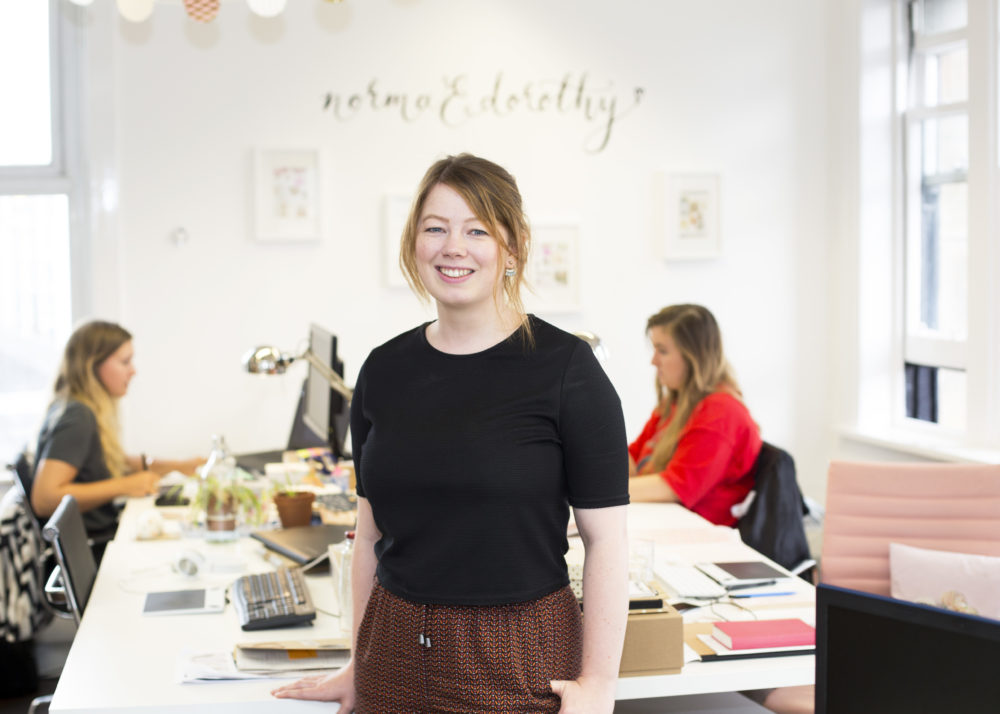Starting a business is a dream for many – and they are likely to be thinking of launching without obtaining any funding from third parties.
Mike Ellis, founder of digital marketing agency 43 Clicks North, started his company over a year ago without any funding. Here, he shares his top tips so you can do the same.
Understand your costs
When starting your business, you should already have an understanding of your costs. What do you need to spend to get your business up and running? We can all agree that the last thing a business owner wants to do is fold after three months because they underestimated their initial costs.
Make a list of all outgoings so you can budget, including:
- Materials
- Insurance
- Cost of products/services
- Expenses
- Staff/outsourcing
- Marketing
Overestimate at this point – it is better to expect to spend more and have money left over than be scrambling around to pay suppliers.
Know what you need to survive
When starting any new business, time is a valuable asset. You need time to grow a business and you need education to keep it going. Most people don’t have the luxury of giving up their full-time job right away.
The first major step a new business owner will take is going full-time. To do this, you need to know how much you can survive on. I believe that one easy mistake you can make is wanting to leave only when you can earn as much or more than your previous role. Chances are you won’t be able to do so right away, so this could postpone the launch of your own business unnecessarily.
Look at your bills and outgoings, strip back all unnecessary expenses to the bare minimum and make this your target income. Once you reach this amount, quit your job.
Be patient and willing to sacrifice
Things won’t happen overnight – without funding it is likely you will run every aspect of the business and thus will take longer to develop it.
“Without funding it is likely you will run every aspect of the business”
It is likely you will need to live for longer on the bare minimum than you want to, meaning you miss out on social occasions and other aspects of life. Stay patient and on course – you will reap the rewards from this later down the line.
Invest before you make money
Someone once said to me that when you don’t have money you don’t miss it. What they mean by this is that once you have the money to grow, either with new machinery or additional staff, do it. Don’t sit back and enjoy the additional cash as there is still way more work to do.
Once again, time is valuable. Buying new machinery that reduces time and reduces costs allows you to grow. Additional staff take workload away from you, allowing you to go out there and grow the business. Both are better than being able to afford a couple of nights out or some new clothes.
Identify milestones where you can make your next investment. For me this was when I could hire my first member of staff. When you reach this goal, go ahead and do it without hesitation: you will be glad you did.
Ask for help and advice
No one gets anywhere without help. Thinking the opposite is naïve. Go out and speak to people who have been there and done it. People want to share their success stories so some of the advice you get will be invaluable. You may also find that many will help you get going in other ways.
I was fortunate enough to be offered office space, the use of software and introductions to relevant people as a result of seeking advice. It’s safe to say that I wouldn’t have got where I am now without support. People really are amazing once you ask them for help.
Seek out people who you can help in return – most people are willing to offer advice for free, but it doesn’t mean you shouldn’t offer something to them too. And is someone asks you for help, make sure you oblige and keep the wheel turning.
How three entrepreneurs started with no funding
Anna Jordan talks to three small business owners about their experiences of foregoing funding when starting up their own businesses.
JP Lockwood
JP Lockwood launched Deskmate after discovering that most ergonomic standing desks simply aren’t stylish. He recently got the push to take on the business full-time.
My business partner Arthur and I met at an incubator/start-up bootcamp in late 2016. We were both working out of a co-working space after finishing the course.

The downstairs space was affordable but cramped – it was busy and there were no desks available. At the time Arthur was suffering with neck problems and was told by his osteopath to invest in a standing desk to help alleviate the pain. We did some market research and found that there was an abundance of ergonomic furniture available, priced between £200 and £1,000. It was all clunky, static and overpriced. We spotted a gap, started Deskmate and here we are today.
I only left my job recently. The business I was working for fell into some financial trouble and staff were let off. It prompted me to refocus my effort on what I love: running my own businesses. I’ve learned that there is no right time to take the jump, I was fortunate enough to have been pushed.
Managing cash flow is tough. When you start out, I’d recommend having at least four to six months’ living costs saved so you don’t have any financial pressure. When we started Deskmate, I had none of this and was forced to work in order to pay bills, eat and live. Now – two years down the line – I’m in a much better position and cash flow is easier.
We bootstrapped at the start. We bought a few units, built a website ourselves and got out to market. I think it’s important to fund the business at the right time. For us it means we launch, get Deskmate out there quickly and spend some time really knowing what direction the business is going to take. Now we know (roughly) what we are doing and we haven’t lost any of our equity.
You forego a lot without funding, but you gain a lot as well. I’d say make sure you have a plan, a minimum viable product (MVP) to launch with and to go for it. Any funders would require this anyway and if you can get at least an MVP out to market, it’s a great start.
Grace Sherriff
Grace Sherriff initially made cards for norma&dorothy as a fun side project. She never realised that they would become so popular.

I have a fashion design degree and so like any art graduate I had boxes upon boxes of fabrics, buttons and papers just calling out to be used. I made a couple of Mother’s Day cards and listed them on Etsy – looking back the photographs were terrible quality, just taken on my phone.
They sold within a day or two and I remember how great it felt posting those first few orders. I quickly had to make more stock to keep up with demand and before I knew it, I was selling cards to customers all over the world.
I had no idea how many would sell and had to quickly learn about custom forms and delivery policies. After the success of the Mother’s Day cards I added in birthday and wedding cards which were just as popular as the first range and grew from there.
I left my full-time job as a designer about 12 months after working on norma&dorothy in an ad hoc way. I spent my evenings and weekends on the business unless my job was particularly demanding – in this case norma&dorothy would be put on the back burner.
I realised that without taking the plunge and working on the business full-time, it would never get past the point of being a ‘hobby’ that provided a little extra pocket money. I knew the timing was right as I could not stop thinking about the possibilities of norma&dorothy, especially during my day job. I had so much passion for what I was doing that not quitting my job was simply not an option.
“Without working on the business full-time, it would never get past the point of being a hobby”
Don’t put your head in the sand with the finances on slow months, though – you need to be realistic about what is coming in and going out of the business. Likewise, on good months – when there are plenty of sales coming in – it can be easy to feel like your business is very ‘cash-rich’ but this can be a false sense of security.
My advice in that case is to really understand when your tax and VAT is due so that you can plan this into your spending. Have a good understanding of your overheads and variable costs too.
In the early days I used savings to get the business up and running, there wasn’t too much to buy at the start and using my own money seemed less risky. I probably spent around £500 in total on items such as a printer, a few materials for samples and props for photography.
The business has always been set up in a way that we produce items to order, so we receive the money before we need to spend on materials. It’s very efficient with little waste or need for upfront spending.
Any advice for entrepreneurs without funding?
Be frugal with your spending – there’s no need for a fancy office space or designer chairs in the early days of a business. Try to buy second-hand if you can.
Devise a plan of what you absolutely need to buy right now and what can wait for six months. Look at your return on investment: establish how long will it take you to pay off a machine vs what income it could generate, for example.
Martina Mercer
Martina Mercer runs her own website, sundaywoman.com, but still does other work to help keep the site largely ad free.
I was looking for a community of like-minded women – women who were career-driven but also parents, women who still had desire and a need to feel sexy while juggling life.
I could only find magazines that focused on one area at a time: either careers, parenting, relationships or hobbies – nothing that blended them all together. It was as if you couldn’t have a career and be a parent and still have an active sex life, while enjoying the finer side of life.
That’s when I decided to create Sunday Woman. Who are you on a Sunday? Are you a parent, juggling the odd email and planning a date night? Are you enjoying a trip to the theatre, planning a holiday or organising packed lunches for the next day?
It’s a complex magazine for complex women as none of us can fit into one box.
Moving on from a hobby
I began Sunday Woman as a hobby alongside a full-time career. I didn’t want the pressure of funding as I didn’t have the time to invest my time to match the investment.
“I didn’t want the pressure as I didn’t have the time to invest my time to match the investment”
Thankfully, Sunday Woman grew organically: the more original content I posted, the more people visited and it’s now at a stage where I don’t need funding. I am considering a partnership or franchise opportunities, but time is my limitation.
Deciding on a domain name
I wanted a domain name that sounded familiar but also had scope. Sunday Woman covers everything you are on a Sunday and is the ideal read for the day of supposed rest!
Working towards goals
I still work as a marketing consultant for a number of websites, so I haven’t really left my full-time job. That is the aim one day.
Cash flow has been simple as I didn’t (and still don’t) want Sunday Woman to be full of ads, and so I made the decision that it didn’t need to make a profit for the first year.
Now, I have a lot of people offering a lot of money to advertise, and I have to turn most of them down as I’m still keen to keep it virtually ad free.
We make the money in other ways, such as sponsored posts, social media, product reviews, gift guides and holiday reviews. We’re quite stingy and only allow one link in a sponsored post and the content has to be informative, not promotional. We have a couple of little advertisers on there, but I can’t stand pop-ups and rollover ads.
It needed the investment of my time rather than money and now it pays for itself and then some.
Maximising your free time
Don’t give up your day job! If you’re passionate about the new business, start it in your free time – evenings, weekends and during your lunch break.
This way you can test the waters and see if your idea has legs before taking a huge gamble and focusing on it 24/7. Identify the revenue stream early and set targets to scale this up quickly. As soon as your business pays for itself, you can work out if it would also pay for you.








